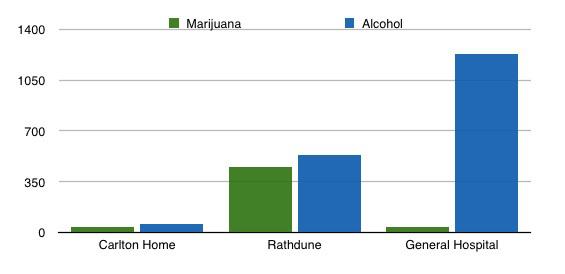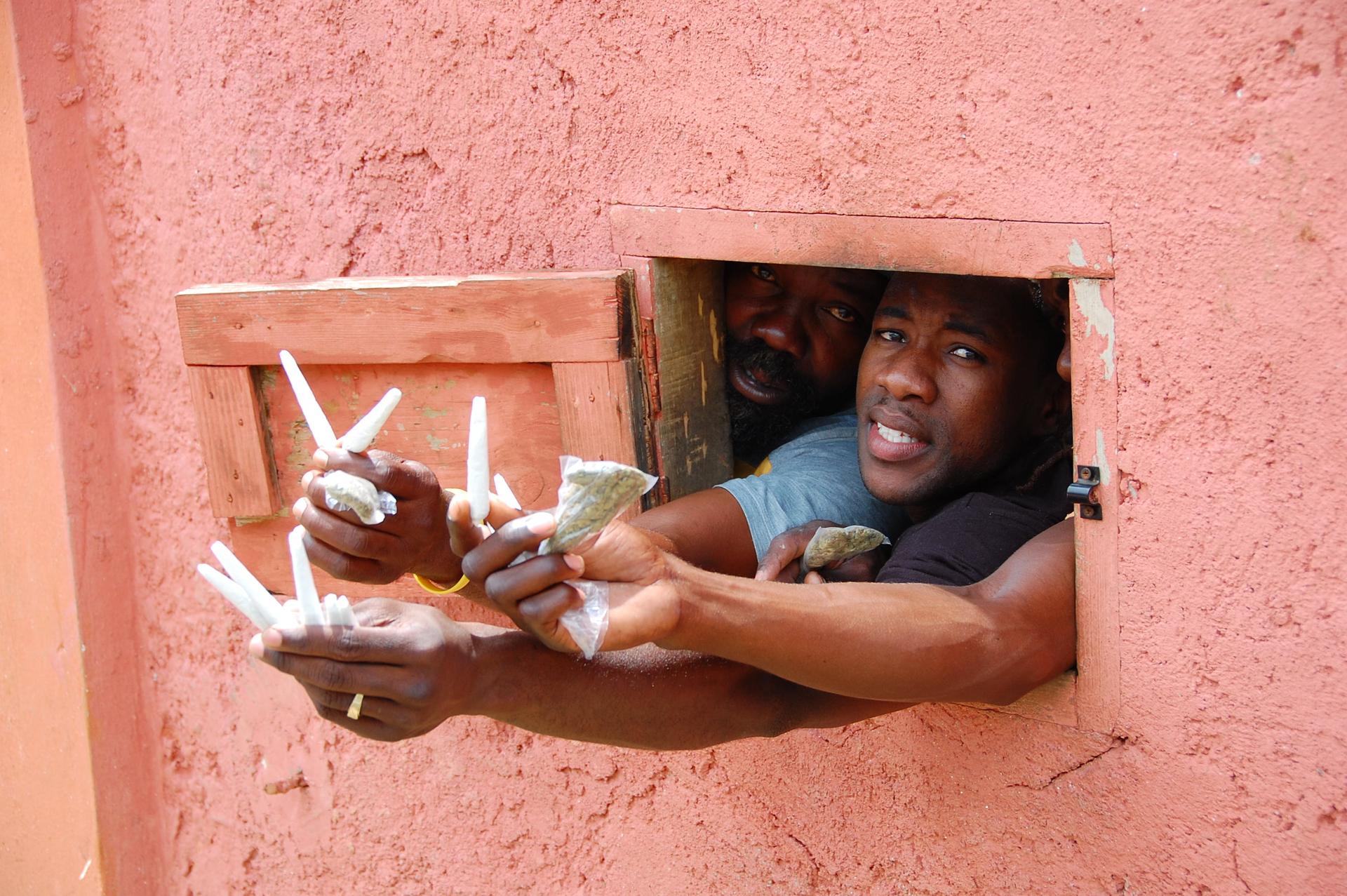Should the Caribbean embrace legal marijuana? Many say yes
Men hold up marijuana at the house of reggae legend Bob Marley.
At the moment, several Caribbean countries are weighing whether marijuana should be legal — and many voices are saying yes.
At one end of the Caribbean archipelago, the Jamaican government is seeking to decriminalize personal possession of up to two ounces of pot — a move that garnered support from the country's Drug Abuse Council. The new rules are scheduled to take effect by next month.
In Grenada, attorney and activist Richie Maitland says moves like Jamaica's should be instructive for his own country. He admits that Grenada isn't inclined to decriminalize because the government maintains that drug-related illnesses are a burden to taxpayers. But in a post on his blog, Groundation Grenada, Maitland challenges this argument by examining hospital statistics — and finding that alcohol-related problems in Grenada far outweigh those involving marijuana.

Much of the difference lies in public perception: alcohol is legal, marijuana is not. The government also says decriminalzation would breach Grenada's obligations under certain international treaties. But Maitland argues that this argument is not only a fig leaf, but legally flawed:
You know what other international obligation Grenada has? An obligation to respect and affirm the equality of LGBTI people […] Governments hide behind international obligations as pretexts when they want to avoid inconvenient action while disregarding other obligations with impunity. Emphasizing international obligations is therefore a weak argument against decriminalization.
But to address the substance rather than the hypocrisy of the argument, this issue has actually been determined by Caribbean international law expert – Professor Stephen Vascianne […] from Jamaica. Grenada and most of the rest of the Caribbean share the same drug prohibition international obligations as Jamaica. Vascianne concluded in a 2001 paper […] that it was possible to decriminalise personal ganja use in Jamaica without being in breach of international obligations, once cultivation and distribution of ganja remained illegal.
And if there's not yet legalization in some countries, there may still be normalization. This past May, a video emerged allegedly showing Anil Roberts, Trinidad and Tobago's then-minister of sport, rolling a joint. But many social media users seemed more interested in firing him for his performance, which included allegations of corruption in his ministry, than for potential marijuana use.
Roberts resigned last week after after a government investigation found evidence of fraud in a youth sports program.
This story by Janine Mendes-Franco was originally published on our partner Global Voices Online, a community of bloggers from around the world.
We want to hear your feedback so we can keep improving our website, theworld.org. Please fill out this quick survey and let us know your thoughts (your answers will be anonymous). Thanks for your time!
